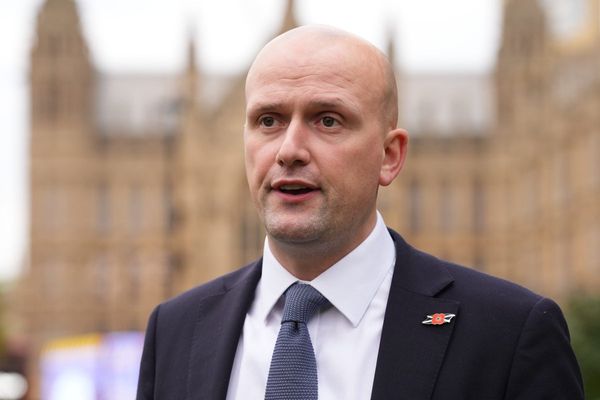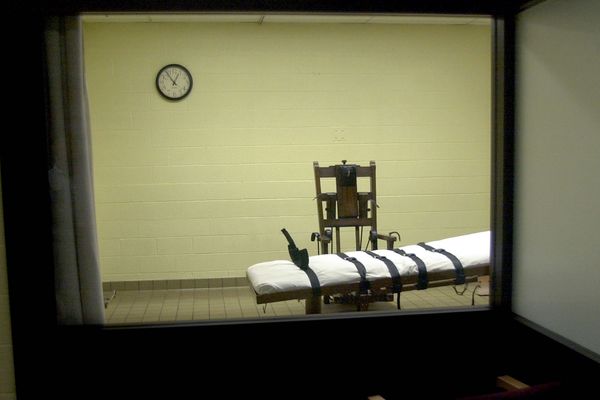
The resignation of New Zealand’s prime minister Jacinda Adern in January, followed by the announcement last week of Nicola Sturgeon’s departure from the role of first minister of Scotland, has raised uncomfortable questions for the women’s movement.
Much has been invested in clearing the legal and social barriers that would have stopped Ardern and Sturgeon from succeeding in the past. What did their resignations say about the worthiness of those efforts? Do women want, and are they even suited for, top political jobs?
The short answer is yes. Leaving at the top of your game isn’t a sign of weakness but of welcome integrity, humility and strength — qualities we may see more of in women because of societal influences, but which aren’t inherent to either gender.
Indeed, rather than a story about gender, the Ardern and Sturgeon resignations reflect the rise of a political leadership style sorely needed in our uncertain and polarised times. A leader we can trust because their core concern is ethics, not entitlement.
What is an ethical leader?
The difference between ethical leaders, such as Ardern and Sturgeon, and others is the object of their efforts. Ethical leaders are focused on service to others and to democratic forms of governance. They bear no resemblance to the adolescent, self-serving political leadership in Western nations like the US, England and Australia, to which the past two decades have forced us to grow accustomed.
Of course, all politicians claim to be motivated by service, but many leaders over recent years have shown — in everything from the tone of their voice to their record — that they actually thought the opposite. They have been it for the power and the glory, and believed we were lucky (and insufficiently grateful) to have them.
But that’s what made Ardern and Sturgeon different throughout their careers. Their integrity, the cohesion between their words and actions, stands in stark contrast to the hypocrisy of their predecessors.
This meant that when Ardern thanked New Zealanders for “giving me this opportunity to serve, and to take on what has and will always be the greatest role of my life”, and when Sturgeon similarly offered passionate thanks to the Scottish people for their “wave of support from you that I will remember and value for the rest of my life”, citizens believed them.
Integrity takes time — citizens need to see whether a politician’s deeds match their words. When they do, trust is built; when hypocrisy is practised, cynicism, suspicion and mistrust are your wages. Both Ardern and Sturgeon were liked for their empathetic styles, but that’s not why they were trusted. They were trusted because they were recognised as the real deal.
Knowing when your time is up
If the question is: can I give this job everything it demands and deserves for another year, let alone for the remainder of this parliamentary term, give it every ounce of energy that it needs? And the way that I have strived to do every day for the past eight years? The answer, honestly, is different. And as that is my conclusion, hard though it has been for me to reach it then, given the nature and scale of the challenges the country faces, I have a duty to say so now.
Nicola Sturgeon’s resignation speech
I am leaving because with such a privileged role comes responsibility, the responsibility to know when you are the right person to lead, and also when you are not. I know what this job takes and I know that I no longer have enough in the tank to do it justice. It’s that simple.
Jacinda Ardern’s resignation speech
Contrast these lines from Sturgeon’s and Ardern’s resignation speeches with the unedifying spectacle of former US president Donald Trump, who timed the announcement of his second run at the presidency to complicate the multiple ongoing criminal investigations into his conduct, including his attempt to stay in power despite losing a free and fair election.
Or Israel’s longest-serving prime minister, Benjamin Netanyahu, attacking the independence of the Israeli judiciary, which is currently trying him for political corruption.
Or nearly every member of the Australian Liberal Party declining to censure former prime minister Scott Morrison for secretly occupying multiple ministries, which undermined responsible government and was corrosive of public trust.
Or the refusal of Labor Minister Michelle Rowland to resign because of the conflict between her obligation to oversee online gaming regulation in the public interest and her acceptance of multiple donations from Sportsbet before the last election. Or…
We deserve better from our leaders. But I’ve included this last example for a reason, because while women’s experience and socialisation may give them a leg-up in the ethical leader category — we are trained to please and to serve others from the day we are born — we can betray the requirements of ethical leadership, too.
Research suggests babies of both sexes are born understanding and motivated to practise pro-social behaviour like helping (kindness) and sharing (justice). As parents and schools no longer socialise boys to abandon their innate concern for others, my hope is men and women will increasingly exhibit the sort of ethical leadership Ardern and Sturgeon have so beautifully modelled.
Would you like to see more leaders like Ardern and Sturgeon? Can you think of any Australian politicians who are cut from similar cloth? Let us know your thoughts by writing to letters@crikey.com.au. Please include your full name to be considered for publication. We reserve the right to edit for length and clarity.







